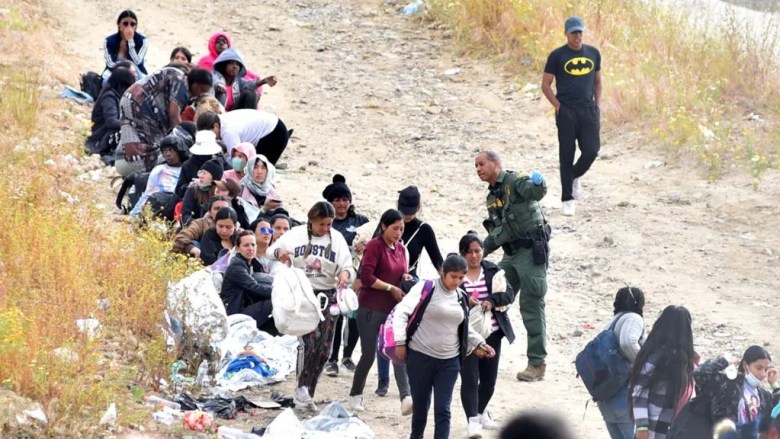Afghan siblings Amir, Suraiya, and Bano Hussaini fled their war-torn homeland in search of safety, only to find themselves scattered across the globe due to U.S. deportation policies. Their harrowing journey began with hopes of seeking asylum in the United States, but they faced devastating setbacks after the Trump administration enacted strict immigration measures shortly after taking office on January 20, 2017.
The Hussaini siblings traveled to northern Mexico, believing they could enter the U.S. on January 24, 2017, to escape the Taliban’s oppressive regime. Instead, the administration’s hard-line stance on immigration closed the door on their dreams. For them, and many others, the change in policy meant that seeking refuge in the U.S. became nearly impossible.
As the siblings made their way to the U.S.-Mexico border, they were filled with anticipation. Amir, 21, and his sisters Suraiya, 26, and Bano, 27, had undertaken a treacherous journey of over 17,500 miles, navigating dangerous terrains and numerous countries. They had pinned their hopes on America, which once provided significant humanitarian aid to Afghanistan. However, their aspirations were dashed when U.S. Customs and Border Protection agents separated them at a detention facility, leaving Amir to watch as his sisters were taken away, never to reunite again.
Suraiya reflected on the family’s ordeal, stating, “We had reached the end of our journey … and our hopes were completely shattered.” The siblings, who once envisioned a brighter future, were now victims of a broader political shift that has tightened asylum policies worldwide.
Their Lives in Afghanistan: A Harsh Reality
Growing up in a Kabul neighborhood plagued by violence and gang control, the Hussaini siblings never dreamed of leaving their home. Their father was a metalworker, and their mother, who never had the chance to attend school, aspired for her children to have opportunities she never had. The Hazaras, their ethnic minority group, had experienced centuries of persecution, but they found some respite when the Taliban fell from power in 2001.
Suraiya pursued a degree in computer science, while Amir worked as a wedding DJ, aspiring to build a life through music. However, the Taliban’s return in 2021 stripped them of their hopes. Suraiya was barred from attending university, and Amir lost his livelihood under the regime’s repressive policies. “If I gave it up, I would have lost everything – my work, my livelihood, my entire way of life,” he said.
Fearing for their lives as violence against Hazaras surged, the siblings decided to leave Afghanistan. They sold everything they owned to finance their escape, including their family home, and set out on a perilous journey through numerous countries.
A Journey Through the Americas
After a year in Iran applying for humanitarian visas, the siblings flew to Brazil in early 2024, feeling a renewed sense of hope. They traveled through 11 countries, facing challenges like theft and the treacherous Darien Gap, a jungle notorious for its dangers. “Nothing was as difficult as the jungle… I had never seen anything like it,” Suraiya recounted.
Despite the hardships, they persevered, applying daily for asylum appointments through a U.S. government app called CBP One. Unfortunately, their hopes were crushed when the Trump administration canceled all appointments just days before their scheduled entry into the U.S., leaving them stranded in Mexico.
Desperate, the siblings attempted to cross the border illegally, only to be apprehended by U.S. Border Patrol agents. They were detained in a facility near San Diego, stripped of their belongings, and separated. Suraiya recalled being told, “Because you have been in prison here in the U.S., no other country will take you.”
Their lives took a dire turn as they were deported to different countries. Amir was sent back to Afghanistan, while Suraiya landed in Panama and Bano, along with her husband and infant daughter, was sent to Costa Rica. This dispersal left the siblings in precarious situations, each struggling without the support of one another.
Amir faced the grim reality of returning to a country where he could be persecuted for his attempts to seek asylum. “If I am arrested, I will be questioned about why I left the country,” he explained. The Taliban’s authority has left many like Amir with little hope for safety or stability.
Human rights organizations have criticized the U.S. for its asylum policies, warning that the deportation of refugees to unsafe countries violates international law. The United Nations has voiced concerns about the treatment of deportees, indicating that many face severe risks upon their return.
Meanwhile, Suraiya and Bano struggled to find safety in their new locations. Suraiya spent months in a migrant refuge in Panama, desperately trying to locate Amir and secure help for him. Bano and her family faced harsh conditions in Costa Rica, where they applied for asylum in Canada and Switzerland, only to be met with refusals.
Searching for Hope
After months of uncertainty, Suraiya found a glimmer of hope when she secured a flight to Chile, where she was granted temporary asylum. As she explored Santiago, the capital, she began to envision a future where she might finally achieve her dreams.
“I want to build a life with my family,” Suraiya said, reflecting on her siblings and parents left behind in Afghanistan. The ongoing plight of the Hussaini siblings highlights the complex and often tragic realities faced by asylum seekers.
As they navigate their new lives, the lingering question remains: will they ever reunite? Their story serves as a poignant reminder of the human cost behind immigration policies and the desperate search for safety and stability in an increasingly hostile world.
